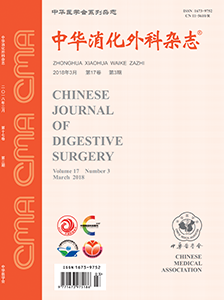Research status and development of digestive system microecology and pancreatic cancer
Q4 Medicine
引用次数: 0
Abstract
Pancreatic cancer is a highly malignant tumor of the digestive system, also known as "the king of cancer" . Its incidence is increasing year by year worldwide. At present, there is still a lack of effective screening methods for pancreatic cancer, and the early symptoms are not obvious. Most pancreatic cancer is diagnosed in the late stage, and the best time for surgery has been lost, and patients often have poor response to radiotherapy, chemotherapy and targeted therapy, so the prognosis is very poor. The occurrence and development of pancreatic cancer are closely related to genetic background, environmental factors, basic diseases and living habits. So far, although certain risk factors have been identified, such as smoking, obesity, alcohol, chronic pancreatitis, type 2 diabetes mellitus, and family history, the cause of pancreatic cancer is still not very clear. In recent years, more and more studies have shown that in addition to the already recognized risk factors for pancreatic cancer, there is a certain relationship between digestive microecological disorders and the progression of pancreatic cancer. The authors review the research status of digestive system microecology and pancreatic cancer, in order to understand the role of digestive system microecology disorders in the occurrence and development of pancreatic cancer, thus providing a new way to effectively improve the prognosis of pancreatic cancer. Key words: Pancreatic neoplasms; Pancreatic can-cer; Digestive system microecology; Helicobacter pylori; Hepatitis virus; Oral microbiota消化系统微生态学与胰腺癌的研究现状与进展
胰腺癌是一种高度恶性的消化系统肿瘤,也被称为“癌中之王”。其发病率在世界范围内呈逐年上升趋势。目前,胰腺癌仍缺乏有效的筛查方法,早期症状不明显。胰腺癌多数诊断为晚期,已失去手术的最佳时机,患者对放疗、化疗和靶向治疗的反应往往较差,因此预后很差。胰腺癌的发生发展与遗传背景、环境因素、基础疾病及生活习惯密切相关。到目前为止,虽然已经确定了某些危险因素,如吸烟、肥胖、酒精、慢性胰腺炎、2型糖尿病和家族史,但胰腺癌的病因仍然不是很清楚。近年来,越来越多的研究表明,除了已被公认的胰腺癌危险因素外,消化微生态紊乱与胰腺癌的进展存在一定的关系。本文就消化系统微生态与胰腺癌的研究现状进行综述,以期了解消化系统微生态紊乱在胰腺癌发生发展中的作用,从而为有效改善胰腺癌预后提供新的途径。关键词:胰腺肿瘤;胰腺can-cer;消化系统微生态学;幽门螺杆菌;肝炎病毒;口腔微生物群
本文章由计算机程序翻译,如有差异,请以英文原文为准。
求助全文
约1分钟内获得全文
求助全文

 求助内容:
求助内容: 应助结果提醒方式:
应助结果提醒方式:


